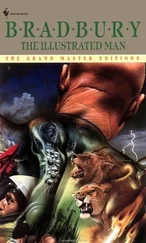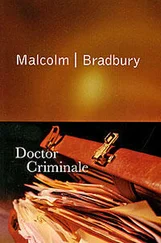Malcolm Bradbury - The History Man
Здесь есть возможность читать онлайн «Malcolm Bradbury - The History Man» весь текст электронной книги совершенно бесплатно (целиком полную версию без сокращений). В некоторых случаях можно слушать аудио, скачать через торрент в формате fb2 и присутствует краткое содержание. Жанр: Современная проза, на английском языке. Описание произведения, (предисловие) а так же отзывы посетителей доступны на портале библиотеки ЛибКат.
- Название:The History Man
- Автор:
- Жанр:
- Год:неизвестен
- ISBN:нет данных
- Рейтинг книги:3 / 5. Голосов: 1
-
Избранное:Добавить в избранное
- Отзывы:
-
Ваша оценка:
- 60
- 1
- 2
- 3
- 4
- 5
The History Man: краткое содержание, описание и аннотация
Предлагаем к чтению аннотацию, описание, краткое содержание или предисловие (зависит от того, что написал сам автор книги «The History Man»). Если вы не нашли необходимую информацию о книге — напишите в комментариях, мы постараемся отыскать её.
The History Man — читать онлайн бесплатно полную книгу (весь текст) целиком
Ниже представлен текст книги, разбитый по страницам. Система сохранения места последней прочитанной страницы, позволяет с удобством читать онлайн бесплатно книгу «The History Man», без необходимости каждый раз заново искать на чём Вы остановились. Поставьте закладку, и сможете в любой момент перейти на страницу, на которой закончили чтение.
Интервал:
Закладка:
It was lucky that, on arrival, they were able to stay for a while with some old Leeds friends of theirs, the Beamishes, who had made the move down to Watermouth one year earlier, and had helped interest Howard in the place. Henry Beamish was a social psychologist, who had himself made quite a stir the year before by proving in a book that television socialized children much more effectively than their parents ever could. From this controversy he appeared to have done extremely well. Certainly the Beamishes, when the Kirks found them again, had changed. They had left the atmosphere of Leeds' radical bedsitterland, of beer parties and trips to watch City on Saturdays and demos outside the Town Hall, well behind them, and had found a new style for their new setting. These people who in Leeds had no money, and used to borrow kettles from their friends because they could not afford to buy one of their own, were now settled, outside Watermouth, in an architect-converted farmhouse, where they were deep into a world of Tolstoyan pastoral, scything grass and raising organic onions. Henry Beamish had grown a new beard of the naval type, heavily touched with grey. He looked very well, despite the pallor left by an unfortunate episode shortly before when he had been poisoned by a mushroom, gleaned at dawn off his own estate; he had even acquired a certain baffled, slightly elderly dignity. Myra now looked stouter, wore her hair in a tight Victorian bun, and smoked small brown cigars. It seemed to Howard that there were two accurate phrases for what they had become over the move, though he forbore to use them, for they were his friends, and they both involved the profoundest condemnation: but weren't they both middle-aged now, and middle-class? The Kirks stared, on their arrival, at the house, at their old friends; they spent much of the visit on their hands and knees with wet toilet paper, sponging out babysick from the good carpet in the smart guest bedroom. It was not an encouraging arrival; but, on the first night, as they sat in front of the opened-out brick fireplace, Henry, pouring homemade wine into Italian glasses, said 'It's strange you should come today. I was just telling some friends of ours about you last night. About that time your marriage nearly broke up. And you came and stayed with us in the flat, Barbara, do you remember? You were carrying the television set and a saucepan.'
'Christ, yes, that's right,' said Barbara warmly, and immediately felt better, because she realized that she did come with a reputation ahead of her, after all.
The real truth about coming to Watermouth, Howard tells people now, with great frankness, is that their arrival unnerved them both. They had known how to live in Leeds, since it was a society that simply amended the one they had grown up in. But Watermouth, from the start, made them wonder what to become, how to build a nature. Leeds was working class, was built on work; Watermouth was bourgeois, built on tourism, property, retirement pensions, French chefs. As they inspected the Beamishes, it seemed to deny existence, to be a freak bazaar of styles; you could be anything here. Radical philosophy approved this, but here it was bourgeois indulgence. Admittedly, as Howard said, we are all performers, self-made actors on the social stage; all role is self-or other-assigned; yet, for a man who believed that reality didn't exist yet, he had to admit he found Leeds more real. The Kirks, staring at Watermouth in the indulgent sunshine, discovered they did not know how to place themselves, house themselves. They drove around in the hilly inland behind the town, in Henry's little 4L Renault, looking at what Henry termed 'properties'. There were a lot of properties. Myra and Barbara sat in the back, the baby between them, a tight squeeze; friend to friend, they explored and analysed in high detail the latter-day ebb and flow of Kirk marital history. In the front seat, Howard sat next to Henry, peering through the windscreen, the visor down, an estate agents' map on his knee, noting with Northern radical scepticism the exotic social mixes through which they passed. From time to time, feeling the need to counter-balance the prejudiced narrative recorded in the back, he talked, victoriously, to Henry, in the sunlight, of his well-liked book, of the reviews, of the new commission and large advance the publisher had given him. Now and then Henry stopped the car, and they got out, and solemnly examined a property. Henry's taste in property had been transformed, become rural and bourgeois; he praised, mysteriously, 'advantages' like paddocks and stables. The Kirks stood and stared, peering through trees at hills. Never having encountered a property before, they had no idea how to behave in the presence of one; they knew their radical desires were being subtly threatened and impaired, even though Henry told them what was true, that they had more money now, that a mortgage was a good investment for the advance, that the time in their lives, with a second baby, was here when they should settle down. But down was not where they wanted to settle; a hideous deceit seemed to be being practised; Henry, having already destroyed himself, was seeking to inculpate them too. 'A property is theft,' Howard kept on saying, looking around at the endless wastes of unpopulated, orderly countryside that surrounded them, depressed them with its frightening timelessness, its unlocated look, its frank detachment from the places where history was happening, the world was going onward and on.
After two days of this, when Henry was about to take them into yet another estate agency in yet another commuterized small town, somewhere in the hinterland of Watermouth, its windows filled with announcements about retirement bungalows, Howard felt the need to speak true. 'Look, Henry,' he said, 'you're trying to impose some false image on us, aren't you? We're not like this, Barbara and me, remember?'
'It's a very sound residential area,' said Henry, 'you'd keep your resale value.'
'We'd go off our heads in one of these places,' said Howard, 'we couldn't live with these people, we couldn't live with ourselves.'
'I thought you wanted something nice,' said Henry. 'No, for Christ's sake, nothing nice,' said Howard, 'I don't come from anywhere like this. I don't accept its existence politically. You don't either, Henry. I don't know what you're doing here.' Henry stared at Howard with a slightly shamefaced, slightly baffled look. 'There comes a time,' he said, 'there comes a time when you realize, Howard. You might want change, well, we all want change. But there is an inheritance of worthwhile life in this country, Howard. We all come to need a place where you can get down deeper into yourself and into, well, the real rhythms of living. That's what Myra and I are into now, Howard.'
'Here?' asked Howard. 'There's nothing here. You stop fighting.'
'Well, fighting,' said Henry, staring at little photographs of houses in the window, 'I'll do my bit for betterment. But I'm divided. I'm not wild about all this violent radical zeal that's about now, all these explosive bursts of demand. They taste of a fashion. Punch a policeman this year. And I can't see what's wrong with a bit of separateness and withdrawal from the fray.'
'No?' asked Howard. 'That's because you're bourgeois now, Henry. You have the spirit of a bourgeois.'
'No, I don't,' said Henry, 'that's nasty. I'm trying to give my life a little dignity without robbing anyone else of theirs. I'm trying to define an intelligent, liveable, unharming culture, Howard.'
'Oh, Christ,' said Howard, 'evasive quietism.'
'You know, Henry, I'm sorry,' said Barbara, 'but if I lived like you, I'd die first.'
'Bourgeois, bourgeois,' said Howard the next day as, their things packed, the baby in the back of the van, they drove off from the farmhouse after an uncomfortable parting. 'Well,' said Barbara, trying to be kind to the kind, the people who had saved her when she was wandering loose with a television set, 'don't forget, they haven't had all our disadvantages.'
Читать дальшеИнтервал:
Закладка:
Похожие книги на «The History Man»
Представляем Вашему вниманию похожие книги на «The History Man» списком для выбора. Мы отобрали схожую по названию и смыслу литературу в надежде предоставить читателям больше вариантов отыскать новые, интересные, ещё непрочитанные произведения.
Обсуждение, отзывы о книге «The History Man» и просто собственные мнения читателей. Оставьте ваши комментарии, напишите, что Вы думаете о произведении, его смысле или главных героях. Укажите что конкретно понравилось, а что нет, и почему Вы так считаете.











